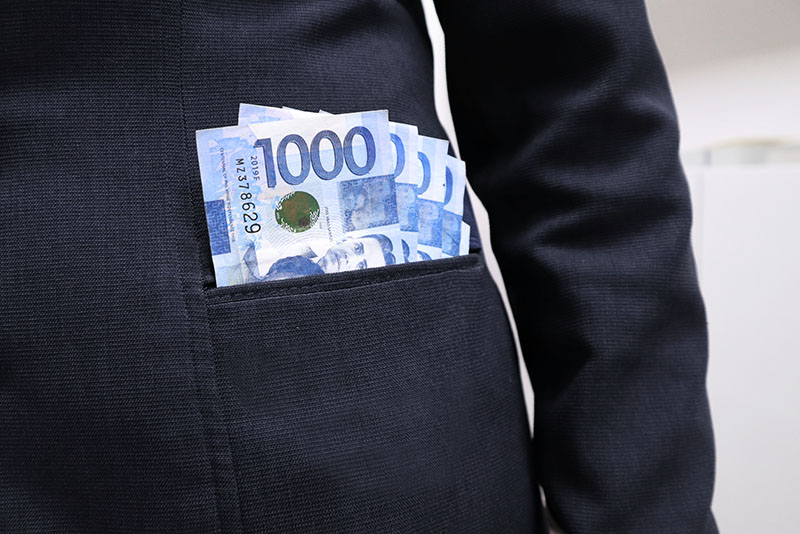Atty. Rodel C. Unciano discusses the taxability of unused/excess campaign contributions under the existing laws.

Utilizing unutilized campaign contributions
By Atty Rodel C. Unciano
"Unutilized/excess campaign funds, that is, campaign contributions net of the candidate’s campaign expenditures, shall be considered as subject to income tax, and must be included in the candidate’s taxable income in the income tax return filed for the subject taxable year. Therefore, the excess unutilized financial aid received by a candidate should be reported as part of his taxable income and the corresponding tax due therein should be paid accordingly."
Even before the campaign period began, campaign expenditures have been flooding the campaign trail, and as most of the candidates would claim, bulk of these expenditures are financial aids from their generous friends and supporters. Well, whether these expenses are sourced from the candidate’s own pocket or financial aids, they are bound to observe the cap that they should spend for an election campaign.
Under the Tax Code, donations are subject to donor’s tax. But based on the same Code, any contribution in cash or in kind to any candidate, political party or coalition of parties for campaign purposes shall be governed by the Election Code. And pursuant to the Omnibus Election Code as well as under Republic Act 7166, any contribution in cash or in kind to any candidate or political party or coalition of parties for campaign purposes shall not be subject to the payment of any donor’s tax.
 As circularized in Revenue Memorandum Circular (RMC) 38-2018 and as reiterated in RMC 31-2019, only those donations or contributions that have been utilized or spent during the campaign period as set by the Commission on Elections are exempt from donor’s tax. Donations utilized before or after the campaign period are subject to donor’s tax and not deductible as political contribution on the part of the donor.
As circularized in Revenue Memorandum Circular (RMC) 38-2018 and as reiterated in RMC 31-2019, only those donations or contributions that have been utilized or spent during the campaign period as set by the Commission on Elections are exempt from donor’s tax. Donations utilized before or after the campaign period are subject to donor’s tax and not deductible as political contribution on the part of the donor.
On the part of the recipient-candidate, campaign contributions are not included in the taxable income of the candidate to whom they were given, the reason being that, such contributions were given not for the personal expenditure or enrichment of the concerned candidate, but for the purpose of utilizing such contributions for the campaign. Therefore, in order to be considered as exempt from income tax, the contributions must be utilized to cover a candidate’s expenditures for his/her electoral campaign.
Unutilized/excess campaign funds, that is, campaign contributions net of the candidate’s campaign expenditures, shall be considered as subject to income tax, and must be included in the candidate’s taxable income in the income tax return filed for the subject taxable year. Therefore, the excess unutilized financial aid received by a candidate should be reported as part of his taxable income and the corresponding tax due therein should be paid accordingly.
But can the candidate use such excess and unutilized campaign fund at his disposal? In one forum, a candidate openly admitted that he has kept unto himself the excess campaign contributions he received during the past elections but paid the corresponding income tax due on the said unutilized campaign contributions. Is that legally permissible?
Donation is essentially, a contract. So, as to whether or not the candidate can keep the unutilized campaign fund for his personal use would largely depend upon the agreement of the donor and the candidate. This is so because the rights and obligations of the donee arise from a contract.
But under the Civil Code, donation may be revoked, at the instance of the donor, when the donee fails to comply with any of the conditions which the donor imposed upon the donee. Therefore, if the donation was intended to fund a campaign and the condition imposed, which was to fund a campaign was not complied, there is a basis for the donor to revoke the donations made. In this case, the donor may demand that the donations made be returned by the donee to the donor.
But of course, this is a concern between the donor and the donee-candidate which they can very well resolve by themselves.
The author is a partner of Du-Baladad and Associates Law Offices (BDB Law), a member-firm of WTS Global.
The article is for general information only and is not intended, nor should be construed as a substitute for tax, legal or financial advice son any specific matter. Applicability of this article to any actual or particular tax or legal issue should be supported therefore by a professional study or advice. If you have any comments or questions concerning the article, you may e-mail the author at This email address is being protected from spambots. You need JavaScript enabled to view it. or call 8403-2001 local 140.



